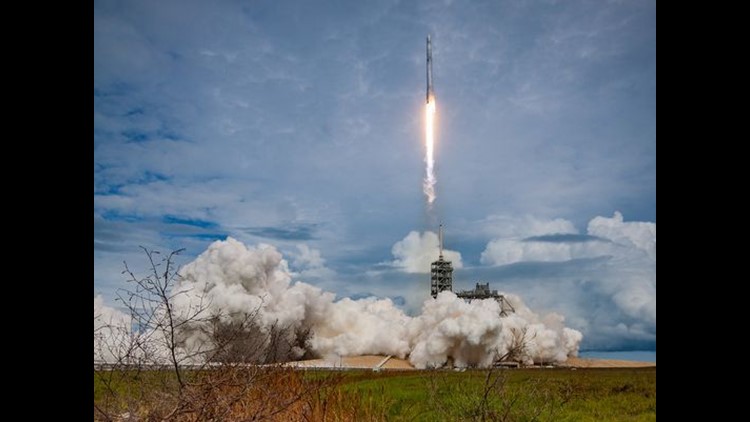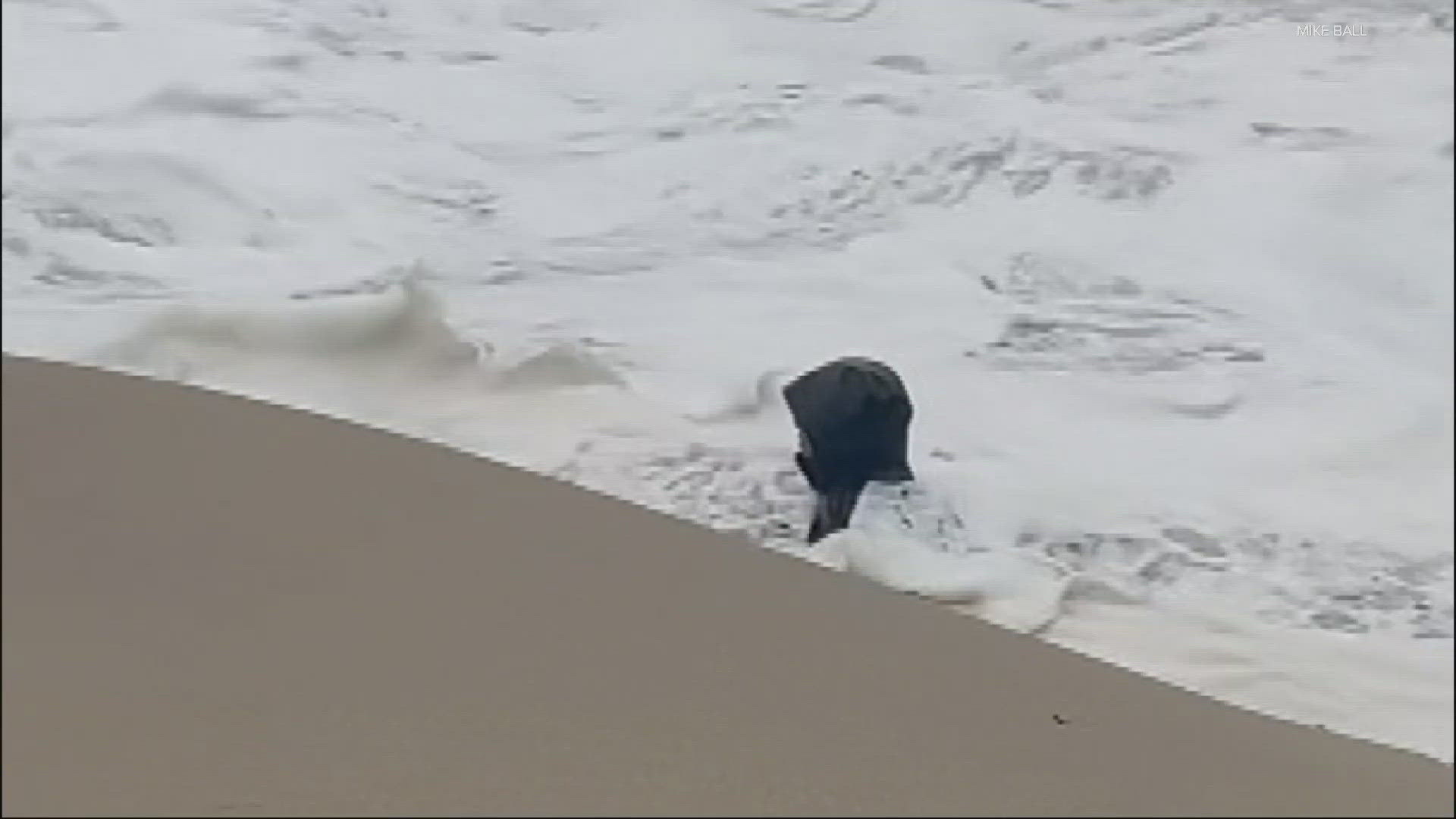This week's chilly Space Coast weather will see a burst of warmth on Wednesday when a SpaceX Falcon 9 rocket blasts off from Cape Canaveral on a supply run to the International Space Station.
SpaceX, NASA and Air Force officials confirmed their readiness for the 11:24 a.m. liftoff from Launch Complex 40 during a news conference at Kennedy Space Center on Monday, noting that weather will be 80 percent "go" during the instantaneous window.
A Tuesday attempt was delayed "to allow for additional time for pre-launch ground systems checks," SpaceX said late Monday.
But the rocket's roar at liftoff won't be the only sign of a Falcon 9 mission – a sonic boom is expected to reverberate across the Space Coast and could expand into several surrounding counties as the rocket's booster returns to land at Cape Canaveral Air Force Station's Landing Zone 1 eight minutes later.
"There is the possibility that residents of Brevard, Orange, Osceola, Seminole, and Volusia counties may hear one or more sonic booms during the landing attempt," SpaceX said in a statement.
Teams will skip a Thursday launch attempt if the mission is pushed back, but will try again on Friday before a 10-day stop on ISS launches due to altered sunlight exposure. Called the "beta angle cutout," the station's orbit will see more sunlight and less time in Earth's shadow, which translates to increased thermal loads, beginning Dec. 17 and ending Dec. 27.
SpaceX's 13th mission under NASA's Commercial Resupply Services contract, labeled CRS-13, will mark the first time the agency flies on a previously flown first stage. The 156-foot-tall booster flew on a previous ISS resupply mission in June 2017 and the Dragon spacecraft – also used – traveled to the ISS in April 2015.
That makes Wednesday's launch vehicle the most reused ever, according to CEO Elon Musk, who said last week on Instagram that his company would "attempt to re-fly both an orbital rocket and spacecraft for the first time."
"We did an extensive review," said Kirk Shireman, NASA’s ISS program manager, when asked about anxieties surrounding NASA's first-ever flight on a used SpaceX booster. "We're very comfortable that the risk posture on this vehicle is not significantly greater than a new booster."
"We'll be anxious, but I wouldn't say a higher level of anxiety for this reflown booster than for a new booster," he said.
Most of the hardware flying on what SpaceX calls the "flight proven" rocket was tested and will be reflown from the original mission, according to Jessica Jensen, director of Dragon mission management for the company. That includes its nine Merlin main engines.
The Dragon spacecraft will be packed with nearly 4,900 pounds of supplies and dozens of science experiments for the crew, including at least one study with ties to Florida – Made In Space Fiber Optics, which will analyze fiber optic filaments in microgravity and could lead to improved optical quality.
Budweiser is getting in on the ISS science action, too – the pale lager brewer will study the germination of barley, one of its main ingredients, on the orbiting outpost. The company said it's part of its larger effort to "be the first beer on Mars."
Other experiments include Plant Gravity Perception, which aims to study how plants sense and respond to gravity; Glucowizzard, an implantable blood glucose monitor that will have its accuracy studied on the station; and Space Debris Sensor, an externally mounted unit that will spend up to three years monitoring small debris impacts into the ISS.
A successful launch on Wednesday will also return Launch Complex 40 to operational status, which was heavily damaged in a September 2016 Falcon 9 explosion. Since then, crews have modernized the pad and improved its automation, turnaround abilities and infrastructure.
Contact Emre Kelly at aekelly@floridatoday.com or 321-242-3715. Follow him on Twitter and Facebook at @EmreKelly.
Launch Wednesday
- Rocket: SpaceX Falcon 9
- Mission: ISS resupply for NASA
- Launch Time: 11:24 a.m.
- Launch Window: Instantaneous
- Launch Complex: 40 at Cape Canaveral Air Force Station
- Weather: 80 percent "go"
Join FloridaToday.com/Space at 10 a.m. Wednesday for countdown chat and updates, including streaming of NASA's launch webcast.



